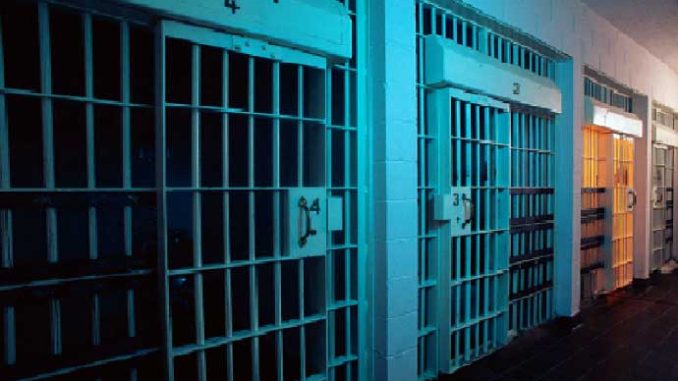
Cochise County’s top judge ruled Thursday that the challenge to a recent election creating a 25-year countywide sales tax to fund a new jail will be decided by a local judge whose wife is a top member of the Cochise County Attorney’s Office that is defending the election.
The one-half cent sales tax was approved May 16 with less than a 800-vote margin in a by-mail-only special election in which only 25,000 of Cochise County’s roughly 86,000 registered voters took part. The tax is expected to generate $8.5 million per year to pay for acquiring, constructing, operating, maintaining, and financing the county’s jail system.
However, four county residents filed an election challenge on June 12 to overturn the results on a number of grounds related to how the election was administered. One key argument by the contestors is that Cochise County’s three-member Board of Supervisors improperly approved the mail-only election.
The election challenge was randomly assigned to Judge David Thorn, one of six full-time superior court judges in Cochise County. Thorn’s wife, Lori Zucco, is one of two chief deputies who report directly to Cochise County Attorney Brian McIntyre.
It is McIntyre’s office which is representing the various county defendants against the legal challenge that also claims more than 10,000 registered voters were not sent ballots even though they were eligible to vote.
And there is a legal question of whether the jail tax could be approved by a simple majority of the votes cast or if a higher majority of approval is required under the Arizona Constitution.
But before any judge can address the merits of the challenge a dispute arose about whether any of Cochise County’s six full-time superior court judges should hear the care.
Former Assistant Arizona Attorney General Charles Johnson is representing the four election contestors. He filed a notice seeking to recuse all county judges for myriad reasons, including the appearance of a conflict.
“There would clearly be a public perception of impropriety” if a Cochise County judge were to hear the case, Johnson argued during a July 6 hearing conducted by the county’s presiding judge, Timothy Dickerson.
Dickerson also heard sworn testimony from Dan LaChance, one of the contestors, as to his reason to justify recusal of all six.
In three 2022 election cases, Dickerson reassigned the matters to outside judges because the vast majority of Cochise County’s judges were on the ballot and thus had a pecuniary interest in the outcomes.
However, he ruled the contestors’ blanket “speculation” about all six judges fell far short of the threshold required by court rules to boot any of the judges.
LaChance also testified as to his concerns that the social relationship between Thorn and McIntyre, whom he described as rumored “drinking buds,” could lead to improper discussion of the case.
Dickerson made specific findings of no demonstrated conflict with Thorn hearing the case, as Zucco only oversees the criminal division, and as such has no direct supervision of the civil division, including Paul Correa, the deputy county attorney representing the county defendants.
The parties were then sent to Thorn’s courtroom for a status hearing. Once there, Johnson asked Thorn to voluntarily recuse himself, noting that comments made during the hearing with Dickerson would likely prejudice Thorn against the contestors.
Thorn denied the motion, noting he believes he is capable of hearing the matter without bias toward either side. He also addressed the fact that election challenges have traditionally been decided in a few weeks, not a few months as will happen with the jail sales tax case.
According to Thorn, this is “a unicorn case” in which there is a challenge to the election results but no candidate waiting to find out if they won. He then set several deadlines in the case running through Sept. 1.
“This is a brisket, not a hot dog,” Thorn noted. “We’re going to take the time it needs.”
Either way, the judge does not believe his decision will be the final word in the election challenge.
“I anticipate this matter will not be decided in the trial court. It’ll be decided at the Supremes,” Thorn told the parties.
